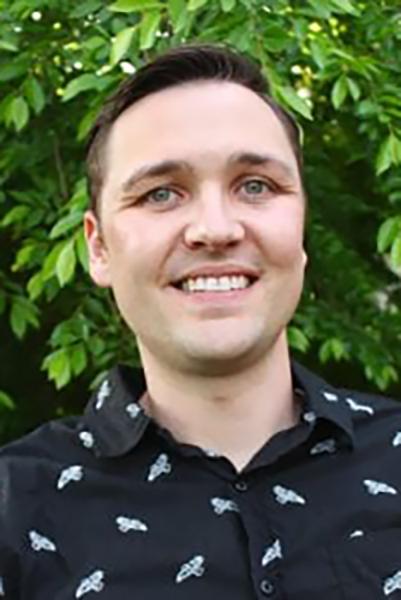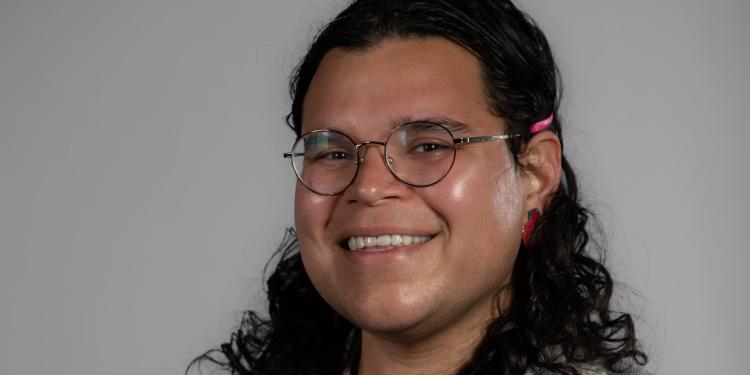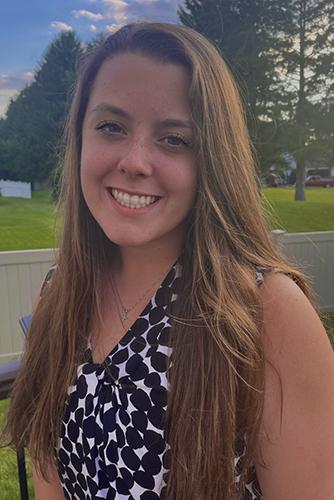Shenk Lab Members
Members of the Shenk Lab

Chad Shenk is the principal investigator for the Shenk Lab. His research interests include early life adversity; risk for adverse health following exposure to pediatric trauma; contamination bias in causal estimation; mechanisms involved in the onset and course of psychiatric disorders following pediatric trauma across multiple levels of analysis (e.g. biology, behavior, environment); and mechanisms of action and active treatment components for behavioral interventions.

Emily Dunning is a graduate student in the Department of Human Development and Family Studies at Penn State, working with Chad Shenk. Emily’s research interests include caregiver-child interaction, the effects of early childhood adversity on the development of self-regulation (physiological and behavioral), and leveraging research findings to develop effective prevention and treatment programs. Emily works on the Caregiver-Child Communication (C3) project as part of the Child Health Study (CHS) as a behavioral coder.

John Felt, Ph.D. is a research assistant professor in the Center for Healthy Aging at Penn State. His research interests involve the identification and application of advanced statistical methods to better understand the short- and long-term consequences of stress. More specifically, he uses both Bayesian and frequentist approaches to analyze cross-sectional and longitudinal data, from observational and experimental designs, to investigate how exposure to stress and early life adversity can affect daily stress processes and health and well-being throughout the lifespan. He primarily works on the Epigenetic and Cognitive Aging Project (eCAP), but is also involved in numerous lab projects using data from LONGSCAN, NSCAW, and other randomized controlled trials.

Metzli Lombera (she/her) is a fourth-year graduate student in clinical child psychology and a child maltreatment T32 predoctoral fellow at Penn State. She is a student therapist at the Penn State Psychological Clinic, where her work focuses on psychodiagnostic and neuropsychological assessments and evidence-based treatments for youth and their parents, with a particular emphasis on youth who have been exposed to child abuse and neglect. Metzli’s research interests include how to operationalize childhood maltreatment, victimization associated with a child's cultural identity (e.g., a child experiencing emotional abuse due to being part of the LGBT+ community), and mechanisms of action for culturally adapted treatments targeting childhood abuse and neglect.

Ashlyn McClelland is a senior majoring in pre-medicine along with minoring in biology and Spanish. In the future, she would like to attend medical school in hopes of becoming an interventional radiologist. Ashlyn is a member of the Caregiver-Child Communication (C3) Coding Team using data collected from the Child Health Study. The efforts of this team are to code child-caregiver interactions based on a validation and invalidation coding scale while maintaining inter-rater reliability. Outside of research, she is a pitcher for the club softball team, a manager for the varsity softball team, secretary for the Special Olympics club, and a teaching assistant for human cadaver anatomy (BIOL476).

Anneke Olson is a graduate student in the Department of Human Development and Family Studies at Penn State. She is interested in identifying mediators and moderators of the association between child maltreatment and health outcomes across childhood and adolescence. She is particularly interested in family relationships (caregiver-child relationships, sibling relationships) following child maltreatment and how the dynamics of these family relationships influence individual development (e.g., emotion regulation) to confer risk and resilience for youth who have been maltreated. Ultimately, Anneke is interested in translating basic science in these areas into effective prevention and treatment strategies for families who have been impacted by child maltreatment, as well as the evaluation of child maltreatment interventions.
Projects
- Caregiver-Child Dyadic Communication as a Mechanism of Resilience to Adverse Health Following Child Maltreatment
- Detecting and Controlling Contamination Bias in Prospective Cohort Research on Child Maltreatment
Fellowships and grants
- Predoctoral Fellow, T32 Training Grant: Creating the Next Generation of Scholars in Child Maltreatment Science; Cohort 1 (2020-2022)
- NIH F31 Awardee: Caregiver-Child Communication Following Child Maltreatment: A Dynamic Systems Approach (2022-2024)

Zhenyu (Zach) Zhang, M.S., M.A., is a graduate student in the clinical psychology program and a child maltreatment T32 predoctoral fellow at Penn State. He is also a therapist trainee delivering psychodiagnostic assessment, neuropsychological testing, and evidence-based treatment for a diverse population at Penn State’s Psychological Clinic. Zach’s research interests include: 1) examining multidimensionality of child maltreatment, including developmental timing, type, duration and severity, and their unique effects on adverse outcomes, including psychopathology, risky behaviors, and health outcomes; 2) elucidating biological mechanisms (e.g., neuroendocrine markers and biological aging) linking child maltreatment and adverse outcomes; 3) examining potential sex differences in the biological processes following child maltreatment; and 4) translating findings we learn from basic research to inform, develop, and evaluate timely, accessible, and cost-effective prevention and treatment programs for maltreatment populations. To investigate these research questions, Zach is excited to be working on the Child Health Study and the Life Events and Reactions Study.

